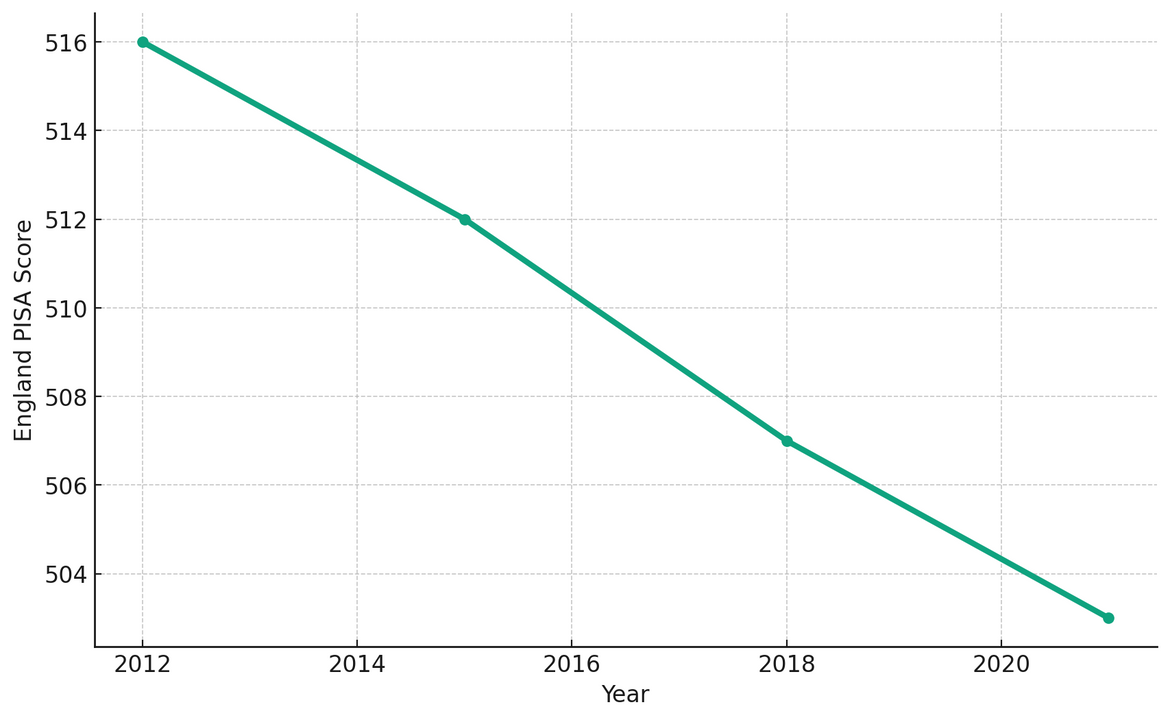PISA and the failure of England's national curriculum
In the famous Sherlock Holmes story, it's the absence of a barking dog which makes the detective curious. The curious thing about yesterday's PISA international test results is the absence of any improvement in England's science results in the last 10 years.
Why? Because over this decade, the government has been carrying out a major experiment on the science national curriculum, adding a lot more content, and persuading teachers to deliver it efficiently through direct instruction.
At the time, they predicted a knowledge-rich curriculum would increase achievement and inevitably see England rise up the PISA table.
But just like school science experiments, this one hasn't gone as planned. Not only have England's PISA scores been in slow decline since 2012, the bottom 10% of our students who you might expect to benefit most from the turn towards knowledge instruction have suffered the biggest drop in scores.
You don't need to be Sherlock Holmes to spot the flaws in the experimental design:
- Adding more content was supposed to bring our curriculum into line with top-performing Asian countries. But as many academics have pointed out, their success is more likely due to cultural, home and student factors than their curricula.
- The government quoted sources like Daniel Willingham's book 'why don't students like school' to support a knowledge-rich curriculum. In fact the main thrust of his argument is that knowledge and skills are equally important, and have to be developed together to make students into capable thinkers.
- The experiment ignored a basic observation: a curriculum is like bucket, it can only hold so much. Overfilling it with content, according to the science teachers I've surveyed, has pushed out investigations and applications of concepts - and made science less engaging for students.
Many PISA-topping countries have been carrying out quite different curriculum experiments, as they grapple with the real challenge - how to prepare students for a complex, uncertain future.
Isn't it time England joined them?

Comments (2)
A superb post and I entirely agree. I’m currently writing up my doctoral thesis, my topic is the Estonian education system and an exploration of how they achieve the top results in Europe for science. Their curriculum is loose, teachers are trusted to deliver how they see best and the whole system is very child led. Students sit only three public exams at the end of their formal schooling, taking away so much high pressure summative assessment would allow for much more time for deep learning and skill development.
Thank you Laura! Estonian science education is an excellent thesis topic, I’d love to read more about it, to see what it is relevant and applicable for our system. As you point out, the lack of government meddling in the detailed content of the curriculum is a big difference.